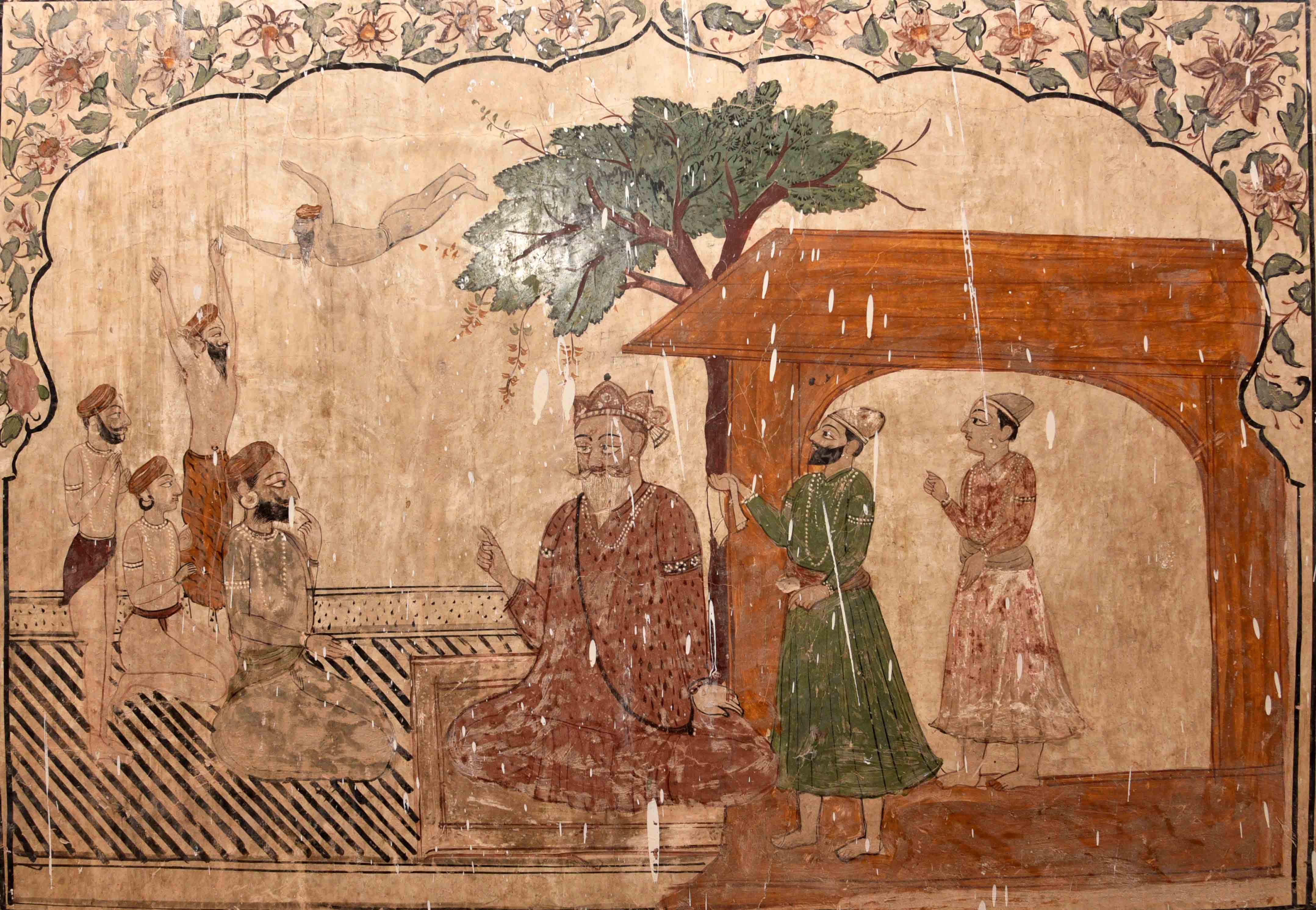"Santa de Karaj Aap Khaloya": A Legacy of Trust and Grace in Sikh Culture

"Santa de Karaj Aap Khaloya": A Legacy of Trust and Grace in Sikh Culture
In the sacred verses of the Guru Granth Sahib, there’s a line that carries quiet reassurance and spiritual certainty: "Santa de karaj aap khaloya, har kam karavan aaya Ram." The Lord Himself comes to accomplish the tasks of His saints. He ensures their work is done.
This line—often repeated by elders in Punjab with the weight of lived experience—isn’t just scripture. It’s a worldview. A belief that righteous work, especially that aligned with compassion (sant), doesn’t go unseen. That divine grace walks beside those on the path of service, justice, and patience. That even when the odds are steep, there is a larger hand at work.
A Personal Inheritance
For many of us, the first encounters with such teachings don’t come from religious texts but from grandparents. In my case, it was a line my Dadaji (paternal grandfather) would often say.
Though I never heard it directly from him—he passed before I was old enough to understand—its echo reached me in pieces. My Nani (maternal grandmother) had often heard my Dada (paternal grandfather) say this line in their interactions. Years later, she shared it with my mother, reminding her of her father-in-law’s quiet strength and ethos. My mother then passed it on to my brother when he moved to the UK. And finally, he shared it with me during a road trip through Scotland, at a time when we were both facing uncertainty. Much later, I heard the full line from my Dadi ji, and in that moment, something clicked. This wasn’t just a quote—it was his life’s compass.
Who He Was
My Dadaji lived a life of remarkable service and dignity. He served in the Indian Air Force, rising through the ranks to become an Air Marshal—a role that reflected discipline, leadership, and resilience. But that’s not where his story begins.
He was born into a family in pre-partition Punjab, now in Pakistan. Like so many others, his early life was marked by the trauma of India’s separation in 1947. His family had to leave everything behind—home, land, identity—overnight. In that moment of total loss and forced migration, one can only imagine how deeply a verse like "Santa de karaj..." would resonate.
It likely became a silent mantra—an anchor through displacement, rebuilding, and all the chapters of life that followed. And it wasn’t just one moment. Life continued to test him in different ways—navigating service life, moving across postings, raising a family in uncertain times. Through it all, he kept this quiet faith close. The kind that doesn’t shout, but steadies.
Culture of Quiet Strength
In rural Punjab, phrases like this are more than proverbs. They shape how people live—how they persist. Whether during a bad harvest, a legal battle over land, or the daily grind of raising children with dignity, these lines offer a psychological and spiritual anchor.
You’ll often hear elders say, “Karaj Rabb aap karaunda hai” (God gets the work done). It’s not a passive surrender, but an active trust—a surrender with a backbone. A kind of quiet defiance wrapped in faith.
In the Sikh Tradition
The line comes from the Bani of Bhagat Namdev, whose verses are included in the Guru Granth Sahib. It speaks to the Sikh ethos of selfless service (seva), humility, and divine alignment.
Guru Nanak’s teachings emphasize that when a person’s actions are truthful, selfless, and in alignment with the divine, the universe responds. The divine isn’t just a cosmic force—it’s an active participant in the life of a sant (a spiritually aligned person).
In that sense, the line is not a license to sit idle, but an assurance that good work is supported—even in unseen ways.
A Message for Our Time
Today, in an age of hyper-individualism and hustle, this phrase serves as a gentle corrective. It reminds us that not all progress is loud, not all wins are immediate, and not all struggles are solitary.
When I look back, I realize that my grandfather wasn’t just quoting scripture. He was handing down an inheritance of resilience, passed from one generation to the next—not in wealth, but in wisdom.
And perhaps, in speaking those words again today, I continue that work.
Quiet Faith in Uncertain Times
As an entrepreneur, I often find myself facing moments of deep uncertainty—where outcomes are unclear and effort doesn’t always translate to immediate results. But this line offers grounding. It reminds me that while I may not control the final outcome, I can move forward with integrity and trust.
Interestingly, this wisdom appears across traditions:
In the Bhagavad Gita, Krishna tells Arjuna: “You have a right to your actions, but not to the fruits of those actions.”
In Christianity, the Gospel reminds us: “Do not worry about tomorrow, for tomorrow will worry about itself.”
In Buddhism, the practice of right effort encourages walking the path with diligence, without clinging to outcomes.
And in Islam, the Quran reminds believers: “And whoever relies upon Allah – then He is sufficient for him.” (Surah At-Talaq, 65:3)
But for me, the teaching comes most clearly in my grandfather’s voice—quiet, faithful, unwavering: "Santa de karaj, aap khaloya." Do the work. The rest will be taken care of.

.png)














